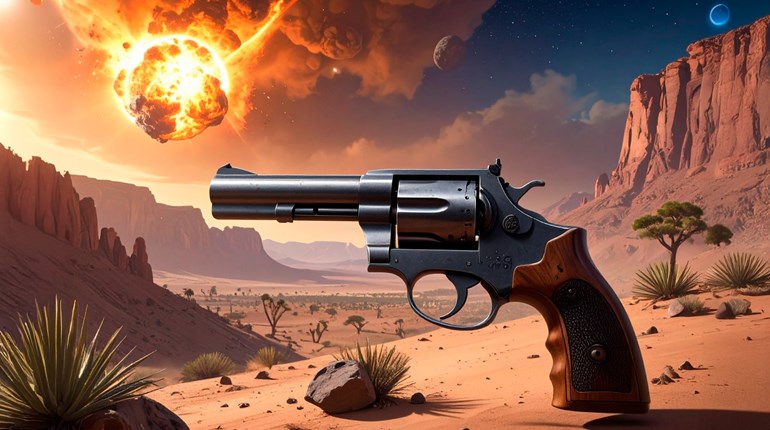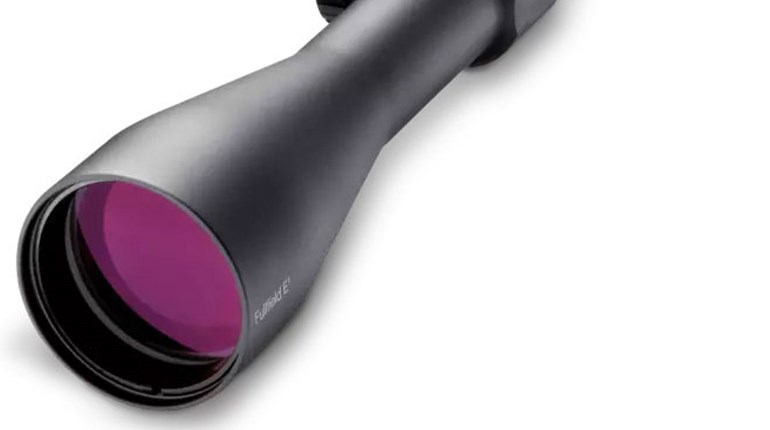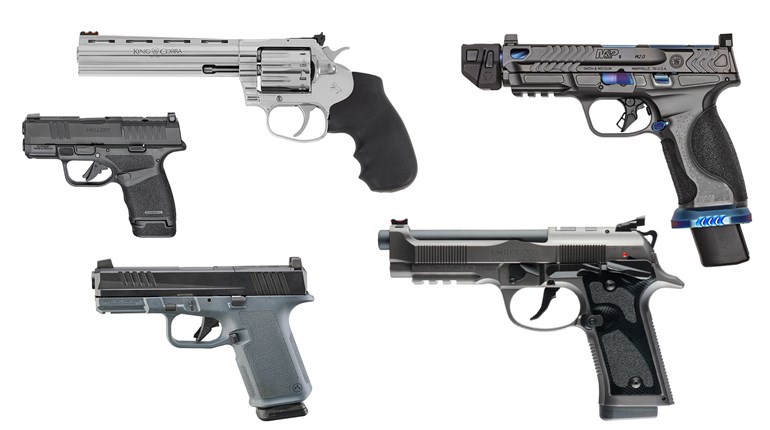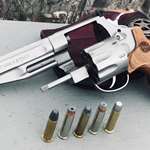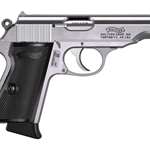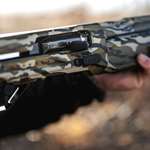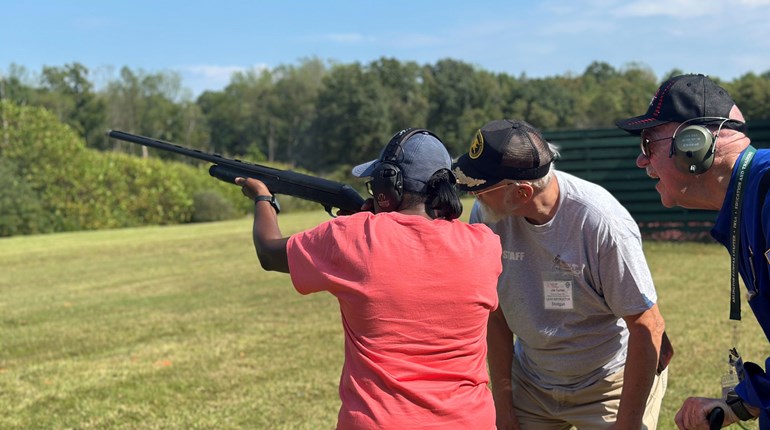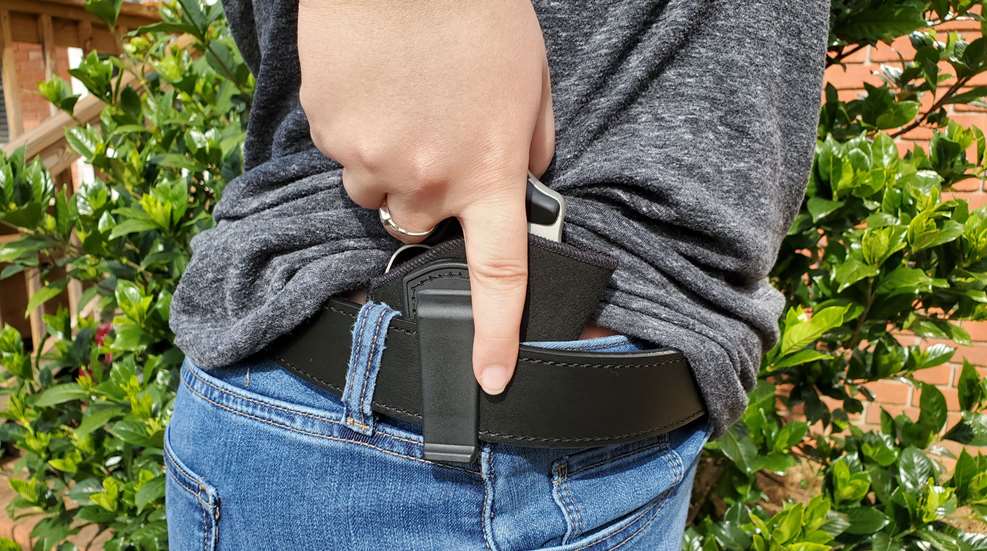
Whether you’ve just gotten your concealed-carry permit or you simply want a firearm for fun at the range and for home protection, you’re in the market for your first handgun. There’s a lot of information to consider, and your options feel unlimited, but there are four guns you should stay away from if you’re new to shooting or carrying.
1. A Tiny Gun
I know, it sounds like it makes sense—small guns for small people, right? Super-tiny, subcompact handguns, especially when they’re pink or teal or some other color designed to appeal to women, look like they were made for us. And maybe they were—but that doesn’t make a tiny gun a good idea for a new shooter.
Why not? Generally speaking, the smaller the gun, the harder it is to shoot well. Short barrels should be reserved for experienced shooters, because they will only magnify any small mistakes in your shooting form. Of course your form isn’t going to be perfect when you start out, so anything that amplifies mistakes is a bad idea. Very small guns, although they’re easy to conceal, are difficult to control and unforgiving when it comes to shooting accurately. Save them for later down the road when you’ve got more confidence in your shooting ability.
2. A Super Lightweight Gun
Some guns are made to be lightweight versions of standard models, and some guns are just designed to be as lightweight as possible. Although a light gun is more comfortable to carry, it will be much harder to shoot accurately, for the same reasons listed above. The lighter the gun, the more felt recoil the shooter will experience, and that erodes accuracy quickly, especially on follow-up shots.
A too-light-for-its-size gun can feel snappy and downright painful to shoot, and a gun that’s no fun to shoot is a gun that you won’t practice with. A gun that’s difficult to control and painful to shoot is a gun you’ll be afraid to use. Speaking of which …
3. Any Gun You’re Afraid Of
The gun world is full of advice on what caliber is good/better/best for self defense—and a lot of it is good advice. For example, a .44 Mag (think Dirty Harry) is probably overkill for everyday carry, and a .22 Mag is probably not enough gun in a perfect world—but you know what? A .22 Mag that you carry every day has a much better chance of saving your life than a .44 Mag that sits at home in the safe because you’re too afraid of it. (For the record, this is an example. Don’t buy a .44 Mag for your first handgun.)
For your first handgun, don’t buy a gun that intimidates you. You’ll either shoot it poorly (and possibly unsafely) because you’re anticipating noise and recoil, or you won’t shoot it at all.
So what if the gun that you’re comfortable with is something the self-proclaimed internet experts consider “not enough gun” for XYZ application? The best gun to buy is one that you shoot well and can carry confidently.
4. Someone Else’s Gun
There’s nothing wrong with trying out all the guns your husband/boyfriend/dad/mom/sister has and seeing what you like—in fact, this is a great way to start making your selection, if they have a sufficient variety. But don’t buy the gun your boyfriend wants you to buy just because he says it’s the best. Don’t buy the gun your mom carries if she’s been an avid shooter for 30 years. Their needs are different than yours!

When I got married to my current husband, my primary gun was a tiny, lightweight .38 Special that my well-meaning first husband had bought for me because it was “good for women.” It was no fun to shoot, and to this day, I can’t hit anything with it past a few yards. Then husband number two came along and took me shooting with his compact .40 S&W semi-automatic. It sucked. It was a small-sized gun in a relatively large caliber, much like my lightweight .38, and it hurt my hands. That was many years ago, and I’m a much more accomplished shooter now—but I still hate that .40.
Take all advice, even if it comes from someone who owns lots of guns or the sales clerk behind the gun counter, with a grain of salt, and don’t buy a gun based solely on someone’s recommendation of what’s “the best handgun out there.”
So, What Should You Buy?
The ideal scenario is to try a bunch of guns, either from a friend or at a gun range that rents firearms, so you get a feel for what works for you. A little experience shooting will also help take away any fear or intimidation you might have surrounding guns in general. While you might start shooting with a .22 LR handgun, you’ll progress very quickly into more appropriate self-defense calibers, so buying a .22 to start probably won’t be necessary.
The gun you should buy doesn’t need to be big, but stay away from sub-compacts for your very first handgun unless you already have a lot of experience. If you plan to carry concealed, look for compact to mid-sized guns. If this is going to be your nightstand gun and you don’t plan to carry it, you’ll probably find a mid-sized to full-sized gun most comfortable to shoot.
As for calibers, standard self-defense loads include .380, 9 mm, .40 and .45 in semi-automatics, with the 9 mm being kind of the Goldilocks “not too big, not too small” option there. If a revolver is more your speed, .38 Special and .357 Magnum are your most popular calibers. You can buy a .357 Mag and shoot .38 Spl. loads out of it for reduced recoil and maximum versatility. If you go the revolver route, don’t buy the lightest one you can find, and avoid what we call snub-nose guns—guns with very short barrels. They’re terrific carry guns, but not necessarily the best option for new shooters.
Bottom line: Your first handgun should be something you can shoot comfortably and confidently. Whatever that looks like for you is your “best.”












